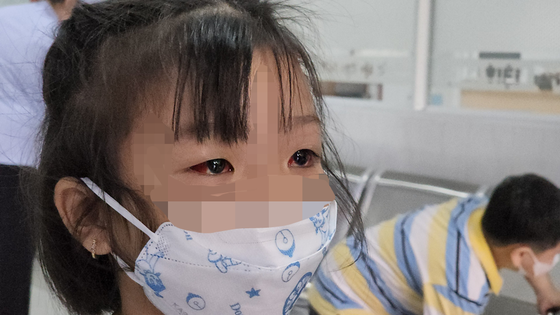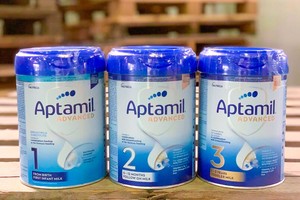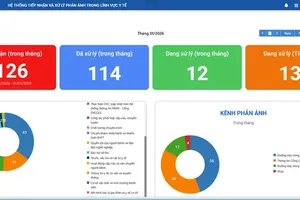 |
A case of pink eye |
The Ho Chi Minh City Department of Health has coordinated with the Oxford University Clinical Research Unit (OUCRU) to conduct research to accurately identify the cause of pink eye in response to the recent dramatical increase in the number of pink eye cases citywide.
The health department also proposed the Department of Education and Training to proactively increase detection and guide students and parents on how to detect and prevent the disease.
According to the Department of Health, the number of cases of pink eye in Ho Chi Minh City escalated to 71,740 from the beginning of the year until now. Moreover, it is worth noting that the number of cases in recent days has tended to increase compared to the first months of the year. Worse, about a third of cases are school-age children, the rest are adults.
A report from Ho Chi Minh City Eye Hospital shows that it is worrying that the number of cases of conjunctivitis–cornea, a severe clinical form of pink eye has been discovered recently, although it is not common.
In 2013, the southern metropolis saw the highest number of pink eye cases within a decade. Since then, though the number of cases of pink eye is still recorded every year, it is not as many as this year.
An infected person should take 5-7 days off from work or school to stay at home to avoid spreading the disease to others. When a person experiences pink eye, they should go to the nearest medical facility for diagnosis, guidance and appropriate care.
Because pink eye is easily spread through contact with an infected surface or person, medical workers advised people to regularly wash their hands with soaps and never touch their eyes with their hands or share towels, facemasks, eyeglasses, eyedrops, or washcloths with others.
Furthermore, a person should use antibiotic eye drops or ointment to kill the infection-causing bacteria as well as chemicals to disinfect their personal items and never contact ill patients.
Most importantly, people should not self-medicate to avoid serious complications, doctors warned.
























